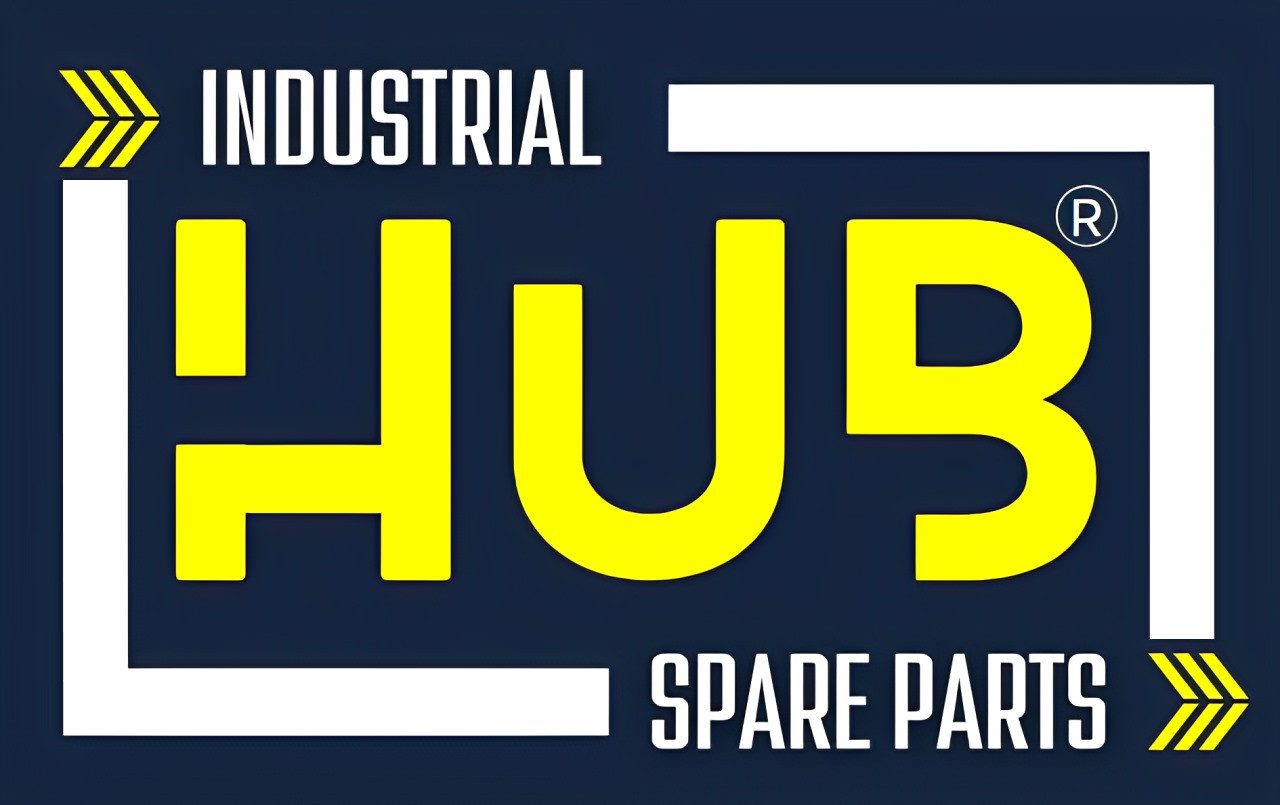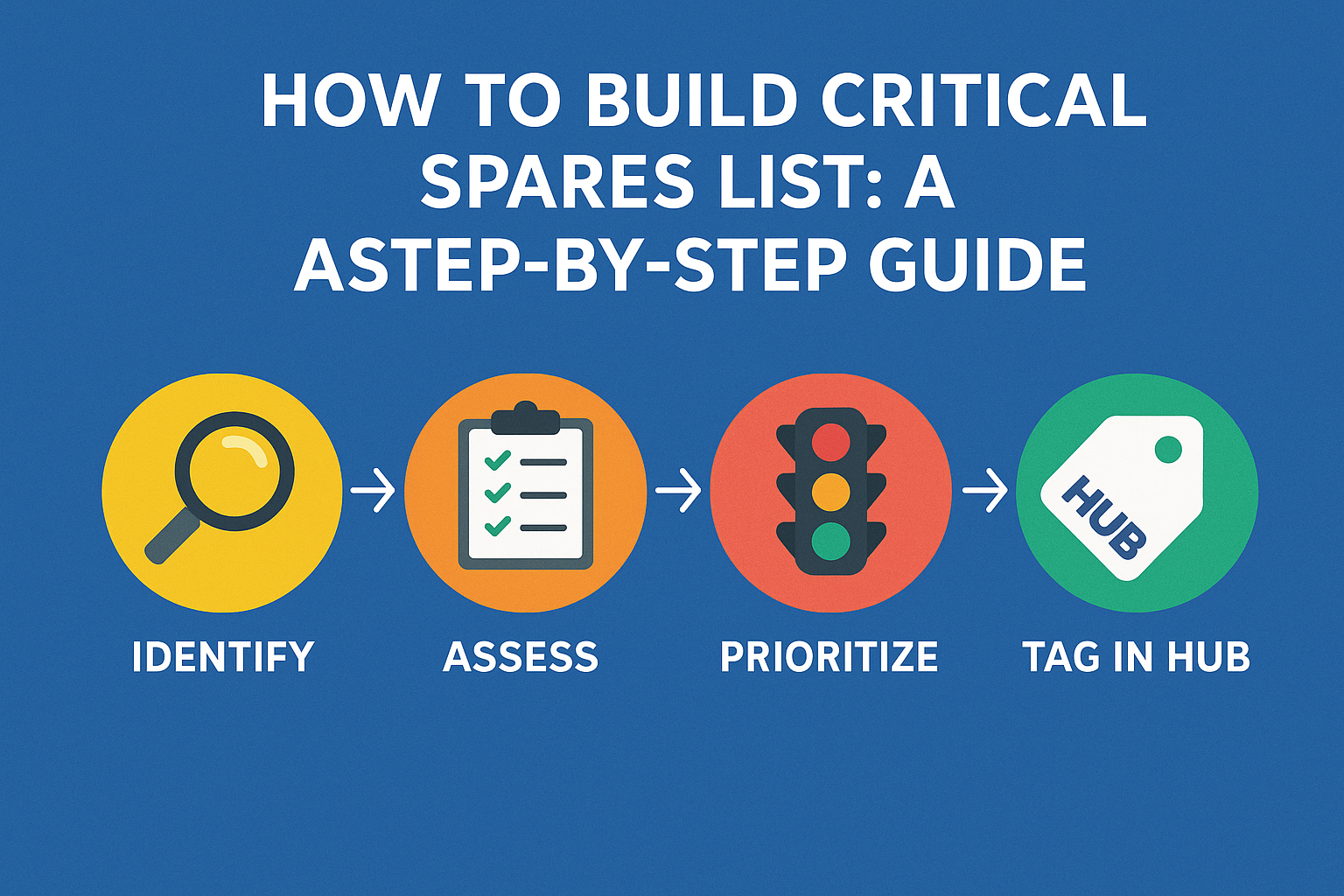No Item in Cart
How to Build a Critical Spares List: A Step-by-Step Guide
Introduction
A single missing part can halt production — but keeping everything in stock isn't practical. That’s why every plant needs a critical spares list: a prioritized catalog of parts that are essential for continuous operations.
In this step-by-step guide, we’ll show you how to build your list and explain how HUB’s tagging feature keeps it dynamic, searchable, and integrated with your procurement workflows.
🛠️ Step 1: Define ‘Critical’ for Your Operations
- Critical spares are usually:
- Required for safety or compliance
- Difficult to source quickly (long lead time)
- Essential for key equipment with no redundancy
- High cost of downtime if missing
🔍 Step 2: Map Your Equipment & Failure Modes
- List major assets and break down:
- Common failure points
- MTBF (Mean Time Between Failures)
- Historical data on part replacements
🗂️ Step 3: List Potential Spare Parts
- Catalog all components related to each asset — from motors and sensors to belts and fuses.
🚦 Step 4: Prioritize Based on Risk & Impact
Rate each part by:
- Criticality score (impact on production)
- Availability (lead time)
- Cost (replacement price vs. downtime risk)
- Use a simple matrix to decide which parts make your critical list.
🧩 Step 5: Validate & Review Regularly
Involve engineers, maintenance managers, and procurement teams to validate the list. Schedule reviews (e.g., annually) to update it based on changes in equipment or operations.
🚀 How HUB Enhances Your Critical Spares List
✅ Smart Tagging: Mark items as “Critical” in HUB for easy filtering and fast reorder alerts.
📊 Dynamic Dashboards: Track the health and stock levels of critical spares at a glance.
🔔 Priority Alerts: Get notified instantly when critical parts fall below safety stock.
📦 Vendor Tracking: Link critical parts with top-performing suppliers for faster sourcing.
🔁 Workflow Integration: Ensure all purchase requests for critical parts follow expedited workflows.
✅ Conclusion
Building a critical spares list is a must for operational resilience. With HUB, you can create, manage, and act on your critical parts list seamlessly — keeping your plant running no matter what.
🔗 Start Tagging Critical Spares in HUB: www.HUBspareparts.com
🔗 Book a Free Demo for Critical Parts Management: WhatsApp Chat














